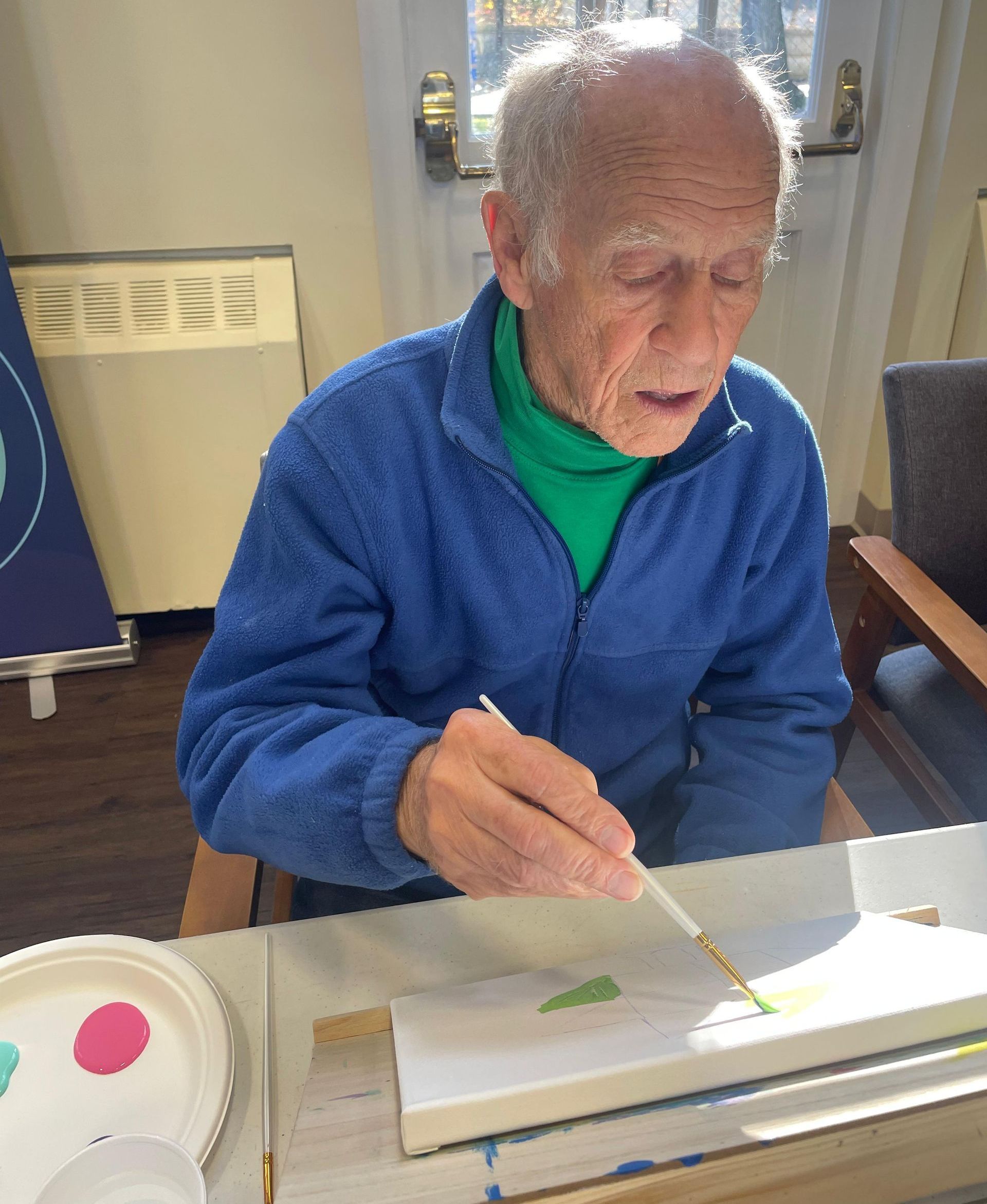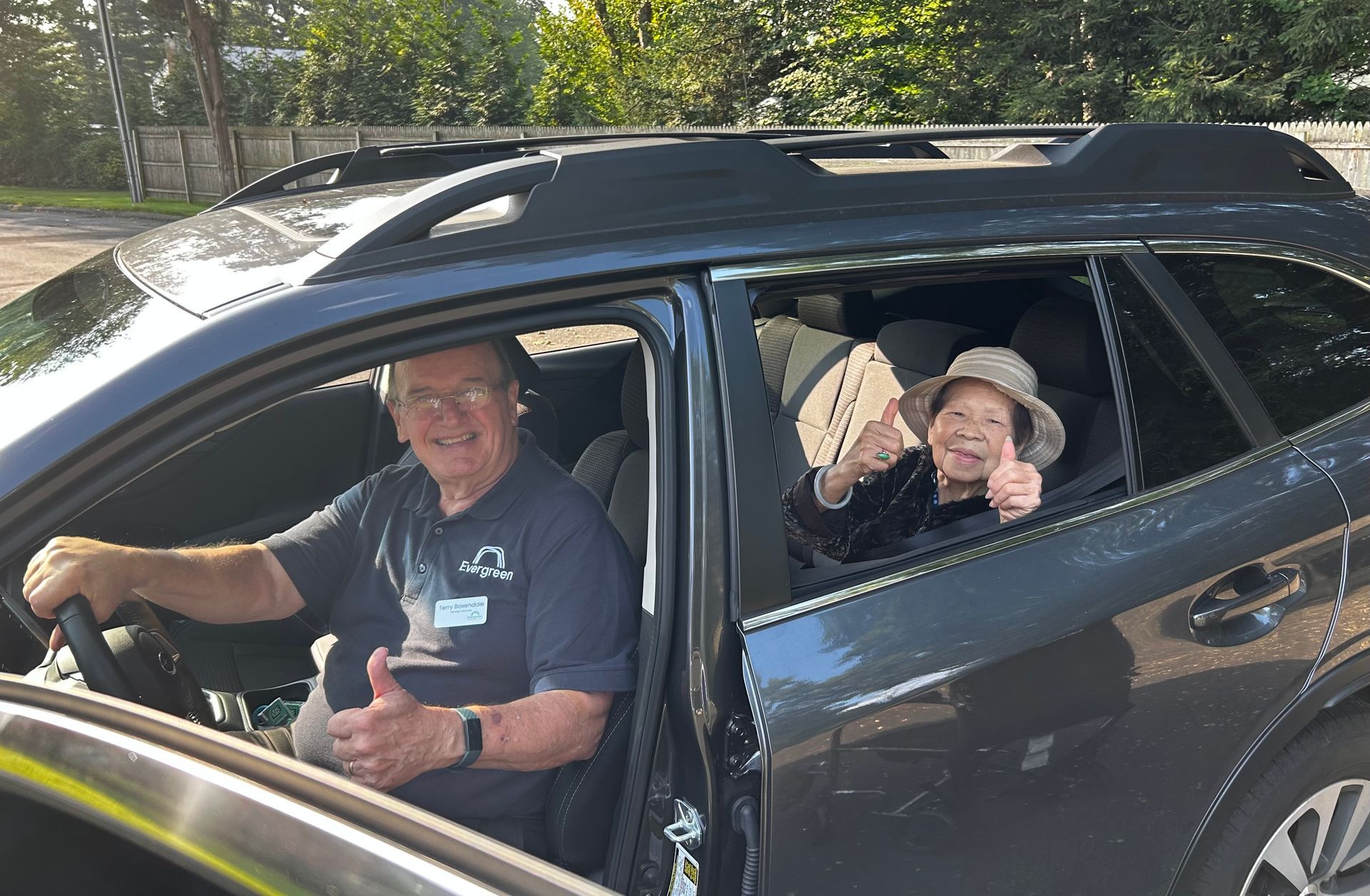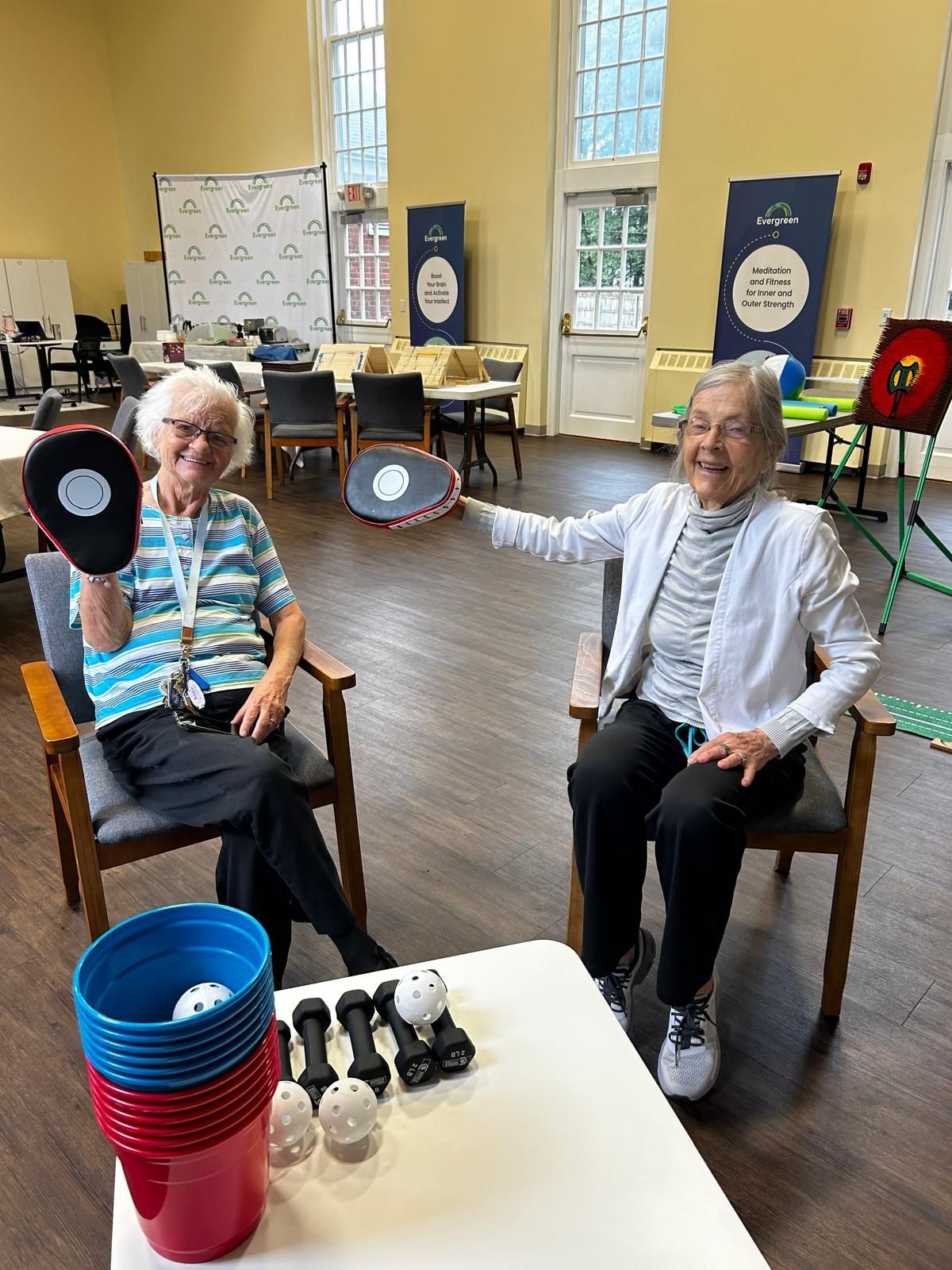Click HERE to RSVP to our Grand Opening on May 15th in Stamford, CT
Questions? Call us: 203-514-7450
Embracing Active Aging:
The Vital Benefits of Exercise for Seniors

Aging is a natural part of life, but growing older doesn't mean slowing down. In fact, staying active is one of the most important things seniors can do for their health. Exercise is not just about adding years to life; it's about adding life to those years. Let's explore the myriad benefits of exercise for seniors and how incorporating physical activity into daily routines can lead to a healthier, happier, and more fulfilling life.
Physical Benefits
1. Improved Cardiovascular Health
Regular aerobic exercise strengthens the heart and improves circulation. This helps lower blood pressure and reduces the risk of heart disease and stroke. According to the American Heart Association, engaging in moderate-intensity aerobic activity for at least 150 minutes per week can significantly improve heart health.
2. Increased Strength and Flexibility
Muscle mass naturally decreases with age, leading to weakness and reduced mobility. Strength training exercises help rebuild muscle, enhance bone density, and improve balance. Flexibility exercises, such as stretching or yoga, increase the range of motion and reduce the risk of injuries.
3. Better Balance and Reduced Fall Risk
Falls are a leading cause of injury among older adults. Incorporating balance exercises into a fitness routine can significantly reduce this risk. The Centers for Disease Control and Prevention (CDC) reports that strength and balance activities can lower the chances of falling by improving coordination and proprioception.
4. Weight Management
Metabolism slows with age, making it easier to gain weight. Regular physical activity helps burn calories, build muscle mass, and maintain a healthy weight, reducing the risk of obesity-related conditions like diabetes and hypertension.
5. Enhanced Immune Function
Exercise boosts the immune system by promoting good circulation, which allows cells and substances of the immune system to move through the body freely and do their job efficiently.
Mental and Emotional Benefits
1. Improved Mood and Mental Health
Exercise releases endorphins, the body's natural mood elevators. This leads to reduced feelings of depression and anxiety. A study published in the Journal of Aging and Physical Activity found that seniors who engage in regular physical activity report higher levels of happiness and overall well-being.
2. Enhanced Cognitive Function
Physical activity can improve brain function and protect against cognitive decline. Research from the Alzheimer's Association indicates that regular exercise may reduce the risk of developing Alzheimer's disease by up to 45%. Exercise stimulates the growth of new brain cells and improves memory and learning.
3. Better Sleep Quality
Many seniors struggle with sleep disturbances. Regular exercise helps regulate sleep patterns, leading to deeper, more restorative sleep. The National Sleep Foundation recommends moderate aerobic exercise to improve sleep quality.
Social Benefits
1. Increased Social Interaction
Joining group fitness classes or walking clubs provides opportunities to socialize and make new friends. Social engagement is crucial for mental health and can reduce feelings of loneliness and isolation.
2. Enhanced Quality of Life
Staying active allows seniors to continue participating in activities they enjoy and maintain independence. This leads to a higher quality of life and satisfaction.
Eye-Opening Statistics
- Only 35-44% of adults aged 75 or older are physically active, according to the CDC.
- Physical inactivity is responsible for an estimated 3.2 million deaths globally each year (World Health Organization).
- Seniors engaging in regular exercise can reduce their risk of falls by up to 23% (Journal of the American Geriatrics Society).
Types of Exercises Suitable for Seniors
1. Aerobic Activities
These include walking, swimming, cycling, or dancing. Aerobic exercises increase heart rate and improve cardiovascular health. Low-impact options like water aerobics are gentle on the joints.
2. Strength Training
Using weights, resistance bands, or body-weight exercises helps build muscle mass and strength. Aim for at least two days a week of muscle-strengthening activities.
3. Flexibility Exercises
Stretching and yoga improve flexibility, reduce stiffness, and enhance mobility. Flexibility exercises help with everyday movements and prevent injuries.
4. Balance Exercises
Practices like Tai Chi or simple standing exercises improve balance and coordination, reducing the risk of falls.
Tips for Getting Started
1. Consult a Healthcare Provider
Before starting any new exercise regimen, it's important to talk to a doctor, especially if there are existing health conditions or concerns.
2. Start Slowly
Begin with low-intensity activities and gradually increase intensity and duration. This approach helps prevent injuries and makes it easier to stick with the program.
3. Set Realistic Goals
Setting achievable goals provides motivation and a sense of accomplishment. Track progress to stay motivated.
4. Choose Enjoyable Activities
Engaging in activities that are enjoyable increases the likelihood of maintaining an active lifestyle. Whether it's gardening, playing with grandchildren, or joining a dance class, enjoyment is key.
5. Stay Hydrated and Eat Well
Proper nutrition and hydration support physical activity and overall health. Eating a balanced diet rich in fruits, vegetables, lean proteins, and whole grains fuels the body for exercise.
Overcoming Common Barriers
1. Time Constraints
Physical activity doesn't have to be time-consuming. Even short bursts of activity, like 10-minute walks, add up over time.
2. Physical Limitations
Exercises can be adapted to fit individual abilities. Chair exercises or water aerobics are excellent options for those with limited mobility.
3. Lack of Motivation
Finding an exercise buddy or joining group activities can increase accountability and make exercise more enjoyable.
Conclusion
Exercise is a powerful tool that can dramatically improve the physical, mental, and emotional well-being of seniors. It's never too late to start reaping the benefits of an active lifestyle. By incorporating regular physical activity into daily routines, seniors can enhance their independence, manage health conditions, and enjoy a richer quality of life.
Remember, the goal is not to run marathons but to stay active in ways that are enjoyable and sustainable. Whether it's a leisurely walk in the park, a dance class, or gentle yoga, every bit of movement counts.
So lace up those sneakers, find an activity you love, and take the first step toward a healthier, happier you. Your body and mind will thank you for it!
Adult Day Programs Frequently Asked Questions
How Does Cooking Help Seniors with Dementia?
 Button
ButtonCooking is a powerful activity for seniors with dementia as it engages multiple senses — sight, smell, taste, and touch — which can help stimulate memory and cognitive function. At Evergreen Daytime Senior Care, our Cooking Club provides seniors with a supportive environment to practice these skills, fostering a sense of independence, confidence, and joy.
What Types of Recipes Are Prepared in Evergreen’s Cooking Club?
 Button
ButtonEvergreen’s Cooking Club focuses on simple, nutritious, and dementia-friendly recipes that everyone can enjoy. We prepare a variety of dishes, from fresh fruit parfaits to classic comfort foods, fresh-baked bread, hummus and 5-ingredient granola bars all tailored to accommodate different skill levels and dietary needs. Our recipes are designed to promote cognitive health and overall well-being in our senior members.
How Can I Get Involved with the Cooking Club at Evergreen Daytime Senior Care?
 Button
ButtonIf you're interested in learning more about our Cooking Club or other activities, visit our website at www.withevergreen.com and enjoy a complimentary guest pass for the day, or contact us directly. Whether you are a family member looking for engaging dementia care activities or a community member interested in volunteering, we welcome you to join us in creating delicious memories!







